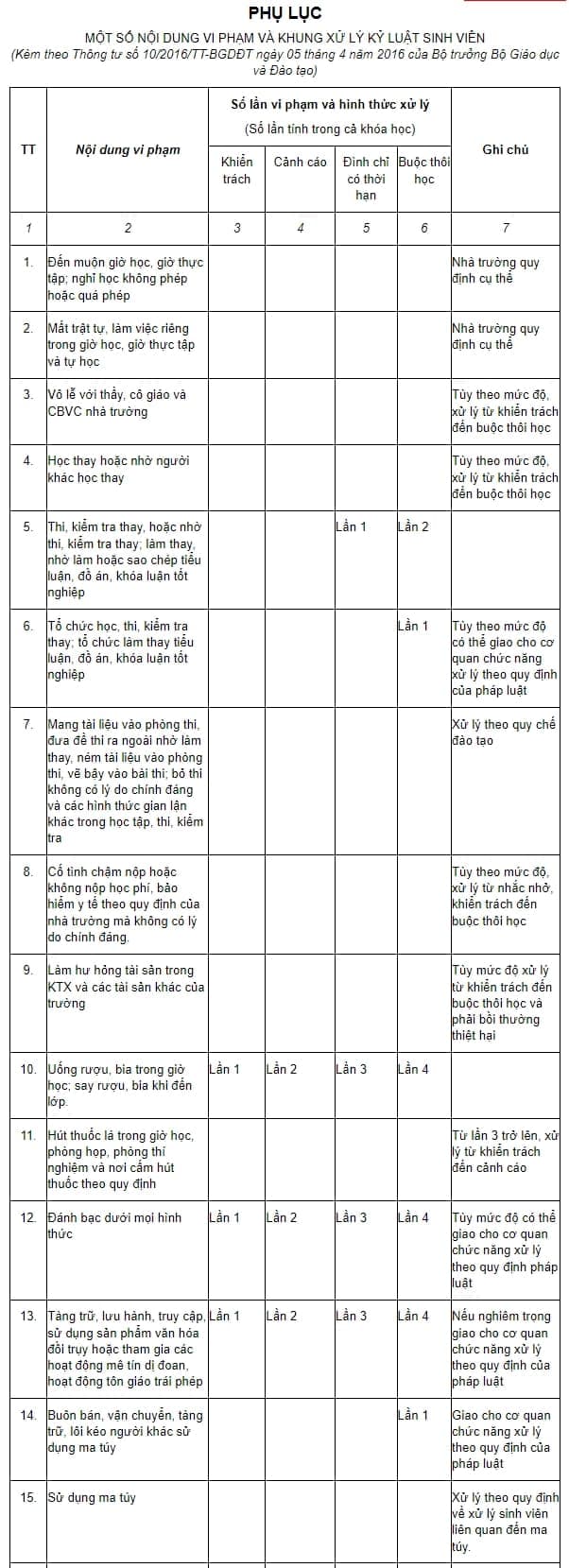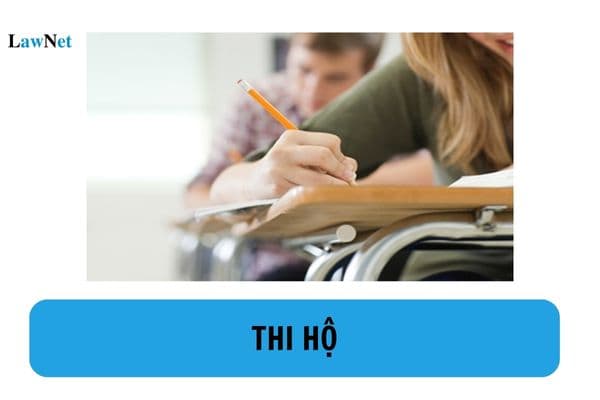What are the penalties imposed on full-time university students who employs impersonation in taking exams in Vietnam?
What are the penalties imposed on full-time university students who employs impersonation in taking exams in Vietnam?
According to the Appendix issued together with Circular 10/2016/TT-BGDDT, certain violations and the disciplinary framework for students in Vietnam are regulated as follows:

Full-time university students employing impersonation in taking exams in Vietnam will be disciplined as follows:
- For the first violation, the disciplinary action will be a temporary suspension from studies.
- For the second violation, the disciplinary action will be expulsion.

What are the penalties imposed on full-time university students who employs impersonation in taking exams in Vietnam? (Photo from Internet)
What are procedures for imposing disciplinary actions against full-time university students in Vietnam?
Clause 1, Article 10 of the Student Affairs Regulations for full-time university programs, issued together with Circular 10/2016/TT-BGDDT, stipulates as follows:
Disciplinary procedures and dossiers
1. Disciplinary procedures:
a) Students who commit violations must write a self-criticism report and propose a disciplinary form for themselves. If the student does not comply with writing the self-criticism report, the Reward and Disciplinary Council will still meet to handle the case based on the collected evidence;
b) The class monitor convenes a meeting with the student body, analyzes, and proposes a disciplinary form to the faculty or the student affairs unit;
c) The faculty or student affairs unit reviews and proposes to the Reward and Disciplinary Council of the university;
d) The Reward and Disciplinary Council organizes a meeting to consider the discipline, including: members of the Council, representatives of the student body, and the violating student. If a student invited to the disciplinary meeting does not attend without a valid reason and does not provide a self-criticism report, the Council will still proceed with the meeting and consider it a lack of disciplinary awareness.
The Council proposes a disciplinary form and recommends that the university head issue a written disciplinary decision.
...
Thus, the disciplinary procedures for full-time university students are carried out in the following steps:
Step 1: The student writes a self-criticism report and proposes a disciplinary form
Students who commit violations must write a self-criticism report and propose a disciplinary form for themselves. If the student does not comply, the Reward and Disciplinary Council will still meet to handle the case based on the collected evidence.
Step 2: Meeting and proposing a disciplinary form
The class monitor convenes a meeting with the student body, analyzes, and proposes a disciplinary form to the faculty or the student affairs unit.
Step 3: Review
The faculty or student affairs unit reviews and proposes the case to the university's Reward and Disciplinary Council.
Step 4: Disciplinary meeting and issuing a disciplinary decision
The Reward and Disciplinary Council organizes a meeting to consider the discipline, including:
- Members of the Council;
- Representatives of the student body and the violating student.
If a student invited to the disciplinary meeting does not attend without a valid reason and does not provide a self-criticism report, the Council will still proceed with the meeting and consider it a lack of disciplinary awareness.
The Council proposes a disciplinary form and recommends that the university head issue a written disciplinary decision.
When does the disciplinary decision for full-time university students in Vietnam end?
According to Article 11 of the Student Affairs Regulations for full-time university programs, issued together with Circular 10/2016/TT-BGDDT, the disciplinary decision for full-time university students in Vietnam ends in the following cases:
- For students disciplined with a reprimand:
After 3 months from the date of the disciplinary decision, if the student does not reoffend or commit further violations requiring disciplinary action, the disciplinary decision automatically ends, and the student regains their rights from the date the disciplinary decision ends.
- For students disciplined with a warning:
After 6 months from the date of the disciplinary decision, if the student does not reoffend or commit further violations requiring disciplinary action, the disciplinary decision automatically ends, and the student regains their rights from the date the disciplinary decision ends.
- For temporary suspension cases:
When the suspension term ends, the student must present a certificate from local authorities (commune-level) where they reside confirming good citizenship conduct; a certificate from the competent authority confirming that they have completed their probation, if applicable, for the university to review and readmit if eligible.

